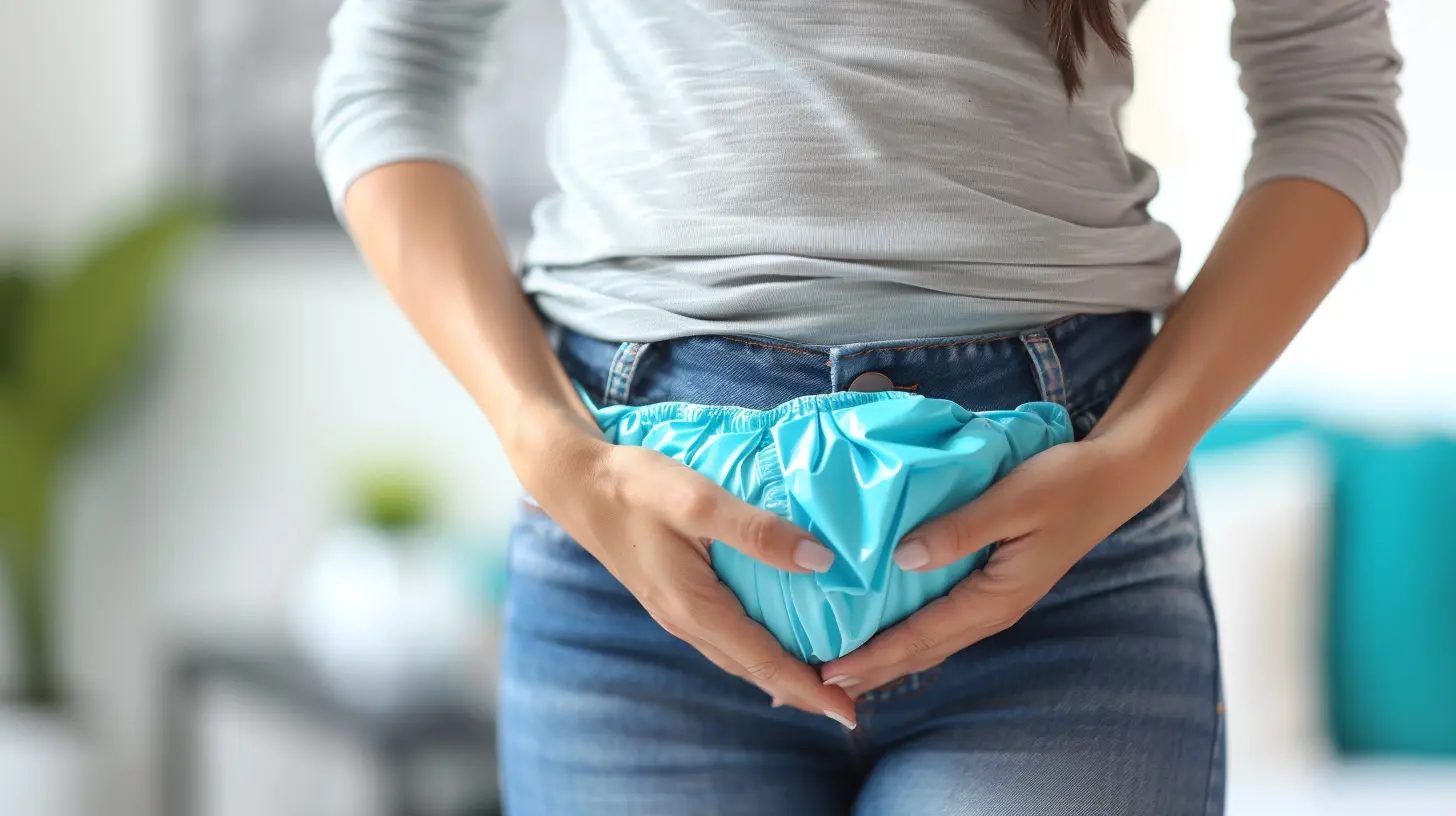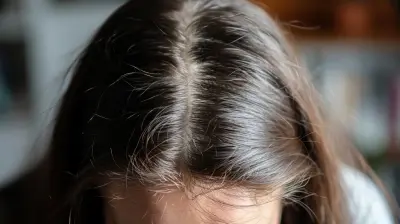Addressing Postpartum Incontinence with Confidence
5 August 2025
Having a baby is nothing short of a miracle. But let’s face it—pregnancy and childbirth take a toll on our bodies, and some of those changes can be downright uncomfortable to talk about. One issue that often gets brushed under the rug is postpartum incontinence. Yep, peeing a little (or a lot) when you sneeze, laugh, or run to catch up with your toddler isn't just “something that happens”—it’s a real condition that affects a lot more moms than you'd think.
Now, before you start feeling embarrassed or alone, take a deep breath. You’re not broken, and you’re definitely not alone. Postpartum incontinence is common, treatable, and manageable. The best part? With the right approach, you can tackle it with confidence and feel in control of your body again.
So grab a cup of tea, settle in, and let’s chat—mom to mom—about what’s really going on, and how you can take charge of it.
What Is Postpartum Incontinence, Anyway?
Okay, first things first—what are we even talking about here? Postpartum incontinence is when you experience involuntary leakage of urine after having a baby. It tends to show up when you cough, sneeze, laugh, or work out. There are actually different types of incontinence:- Stress Incontinence: Leaking when you apply pressure to your bladder (like during exercise or those surprise sneezes).
- Urge Incontinence: That sudden, can’t-hold-it feeling followed by leakage.
- Mixed Incontinence: A frustrating cocktail of both.
This happens because pregnancy and childbirth can weaken your pelvic floor muscles, those hidden little heroes that support your bladder, uterus, and bowels. Think of them like a hammock—for nine months, they held up everything, and childbirth was like a truck rolling over them. It’s no wonder they need a little TLC afterward.
Why No One Talks About It (But Should)
We talk about diaper blowouts and sleepless nights, but pee leaks? Not so much. Why? Because society still treats it like a taboo. But let’s be real—this is a health issue, not a personal failing.Too many moms suffer in silence, embarrassed to bring it up with their doctor or unsure if it’s even something to be concerned about (spoiler alert: it IS). The more we talk about it, the more we normalize it—and that means more support, better education, and quicker recovery for all of us.
Think of it like stretch marks. At first, you’re self-conscious, then you join a mom group on Facebook and realize everyone's got them. It’s the same with incontinence—once you break the silence, you’ll find you're in good company.
How Common Is It?
Here's the truth bomb: Around 1 in 3 women experience some form of incontinence after childbirth. And while it might ease up for some as their bodies heal, others find it's a persistent issue.Age, the type of delivery, the number of births, and even genetics can play a role. Vaginal deliveries, especially those involving forceps or a long pushing phase, tend to increase the risk. But even C-section mamas aren’t totally off the hook—pregnancy itself puts pressure on those pelvic muscles.
Bottom line: You didn't do anything wrong. This isn't about how strong you are—it’s simply something your body has to recover from.
Signs You Shouldn’t Ignore
Maybe you’re leaking just a little when you laugh—or maybe you’re avoiding exercise altogether because you're worried about an accident. Here are some signs that postpartum incontinence needs your attention:- Leaking urine when sneezing, coughing, or lifting
- Frequent, urgent trips to the bathroom
- Feeling like your bladder never completely empties
- Waking up multiple times a night to pee
- Sudden leaks during exercise or when lifting your baby
If any of this sounds familiar, don’t wait it out. There’s no medal for suffering silently, and there are real, effective solutions that can help.
What You Can Do About It—Starting Today
Here’s the good news: there’s A LOT you can do to improve or even eliminate postpartum incontinence. You’re not stuck this way forever. Let’s break down some smart, confidence-boosting steps you can start taking right now.1. Reconnect with Your Pelvic Floor
Your pelvic floor muscles are like the team behind the curtain—you can’t see them, but they’re doing all the heavy lifting. After pregnancy, those muscles need some love. Enter: Kegel exercises.Imagine trying to stop yourself from peeing midstream (just don’t practice this too often on the toilet). That’s your pelvic floor. Squeeze, hold for a few seconds, release. Do this 10-15 times, several times a day. Consistency is key!
Over time, these simple exercises can work wonders. But if you’re not sure you’re doing them right, don’t stress. That’s where the pros come in…
2. Meet Your New Best Friend: A Pelvic Floor Therapist
Yep, this is a thing—and it’s amazing. Pelvic floor physical therapists are trained in helping you recover those crucial muscles. They’ll assess your strength, teach you how to properly engage your core, and create a plan tailored just for you.Think of them like personal trainers for your pelvic floor. If you’re dealing with ongoing symptoms, this might be the game-changer you need.
3. Try Lifestyle Tweaks That Support Healing
Small changes can have a big impact. Try these:- Stay hydrated (yes, really!): Dehydration can make your urine more concentrated and irritate the bladder.
- Avoid bladder irritants: Watch out for caffeine, carbonated drinks, and spicy foods.
- Don’t “hold it” too long: This can confuse your bladder and make symptoms worse.
- Listen to your body: If you feel the urge, go. If you feel discomfort, talk to your doctor.
4. Embrace Mom-Approved Tools
From absorbent undies to bladder-friendly pads, there are plenty of products that let you stay dry and confident while your body heals.Yes, it might feel awkward at first, but honestly? Nobody can tell. You’ll look just as stylish chasing your toddler around the park, minus the stress of leaks. Win-win.
5. Be Patient with Yourself
This one is huge. Healing isn’t linear, and everyone’s timeline is different. Some moms bounce back in a few months. For others, it’s a longer journey. Don’t compare your body to someone else's Instagram highlight reel.Your body did an incredible thing—give it the love, grace, and time it needs to fully recover.
When to Seek Professional Help
Still leaking months later? Feel like you’ve hit a plateau? That’s your sign to loop in a healthcare provider. Whether it’s your OB-GYN, a urologist, or a pelvic floor therapist, don’t be afraid to speak up.Medical interventions are available, too. From medications to specialized therapies and even minimally invasive procedures, there are plenty of options. The key is to advocate for yourself and ask for the support you need.
Addressing the Emotional Side
Let’s not ignore the emotional toll this can take. Leaks can feel embarrassing, frustrating, even isolating. It can shake your confidence—especially when you’re already adjusting to life as a new mom.Please hear this: There is no shame in this. NONE. Just like stretch marks, mood swings, or a post-baby belly, this is one part of your incredible journey into motherhood. It’s okay to feel overwhelmed. What matters is that you know you aren’t stuck.
Talk to your partner. Confide in your friends. Call your doctor. And, above all, remind yourself that you’re doing an amazing job—with every diaper change, every 3 a.m. feeding, and yes, even when you sneak to the bathroom after laughing too hard.
Reclaiming Control—One Step at a Time
Here’s the truth you probably need to hear most: You don’t have to accept incontinence as your new normal. With the right tools, support, and mindset, you can take control of your body and your confidence again.It starts with awareness. Then it moves to action. And eventually—it leads to freedom.
So here's your permission slip to talk about it, laugh about it, and take it seriously when you need to. You’re not alone, mama. And you’re stronger than you think. 💪🏼
Wrapping It Up
Postpartum incontinence is one of those hush-hush issues that desperately needs a voice. And now? You’ve got the information, the tools, and the support to face it head-on.Is it inconvenient? Absolutely. Embarrassing? Sometimes. Unfixable? Not even close.
Whether you’re five weeks postpartum or five years in, it’s never too late to prioritize your pelvic health. Addressing postpartum incontinence with confidence is about more than just “fixing” your body—it’s about reclaiming joy, freedom, and the ability to sneeze without fear.
You’ve got this—and we’re cheering you on every (dry) step of the way.
all images in this post were generated using AI tools
Category:
Postpartum RecoveryAuthor:

Tara Henson
Discussion
rate this article
1 comments
Quade Morris
Ah, postpartum incontinence—because what's more charming than sneezing and peeing at the same time? Parenting is a blast!
August 19, 2025 at 3:50 AM

Tara Henson
Absolutely, it's a real challenge! But with the right support and strategies, we can navigate it together and regain our confidence.


